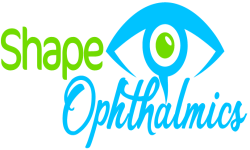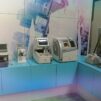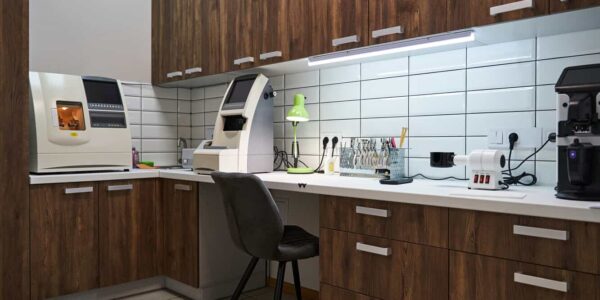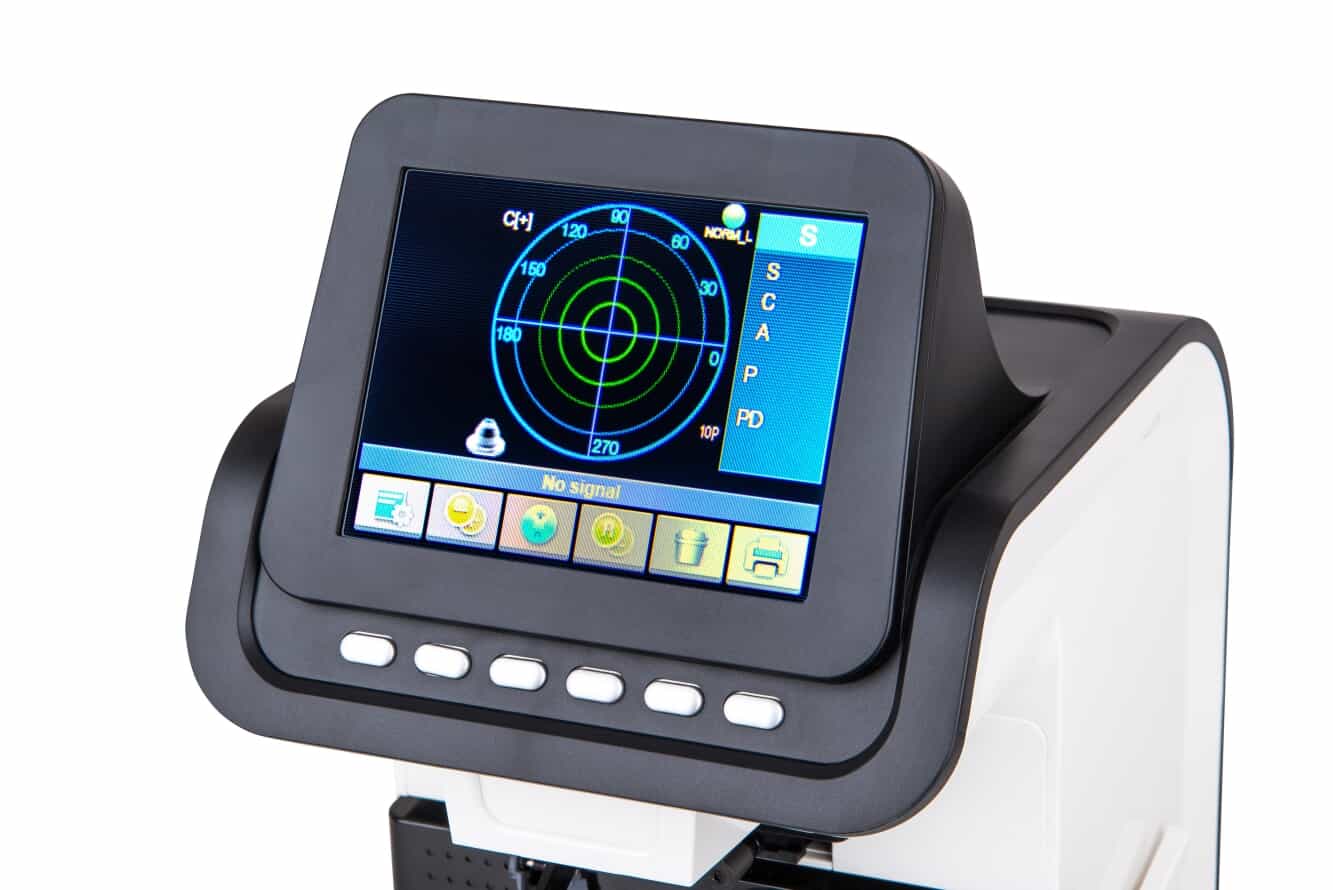
Many eye care professionals consider the lensmeter among the most important pieces of equipment in their practice. The lensmeter is the main tool used for checking prescriptions for new patients. It is also used for making precise measurements for new glasses.
When setting up a new practice or upgrading your equipment, choosing the right auto lensmeter is crucial. It helps you provide the accurate prescription lenses your patients need.
Overview of Auto Lensmeters
Auto lensmeters are a crucial tool for measuring corrective lens prescriptions. Optical care professionals use lensmeters to check prescription accuracy. They also use them to mark and orient uncut lenses.
Lensmeters help confirm that lenses are correctly mounted in frames. The lensmeters will show you readings for power, prism, and axis. Many models can also measure lens color, blue light transmission, prism marking, and interpupillary distance (PD).
In other words, a lensmeter is the tool professionals rely on for all aspects of lens-making. The lensmeter’s accuracy directly ties to how well it provides patients with precise and accurate vision correction.
Selecting the right auto lensmeter for your practice can enhance measurement accuracy, efficiency, and patient satisfaction. It’s essential to consider your specific needs when investing in an auto lensmeter and select the ideal model for your practice. Continue reading to discover what to look for in an auto lens meter and how the top models compare.
Key Considerations When Selecting an Auto Lensmeter
An auto lensmeter is a valuable investment for your practice. You will use it every day. Your patients may not know it, but they will depend on it for clear vision. When you begin shopping for an auto lensmeter, first check its main functions. This will help ensure the device meets the needs of your patients.
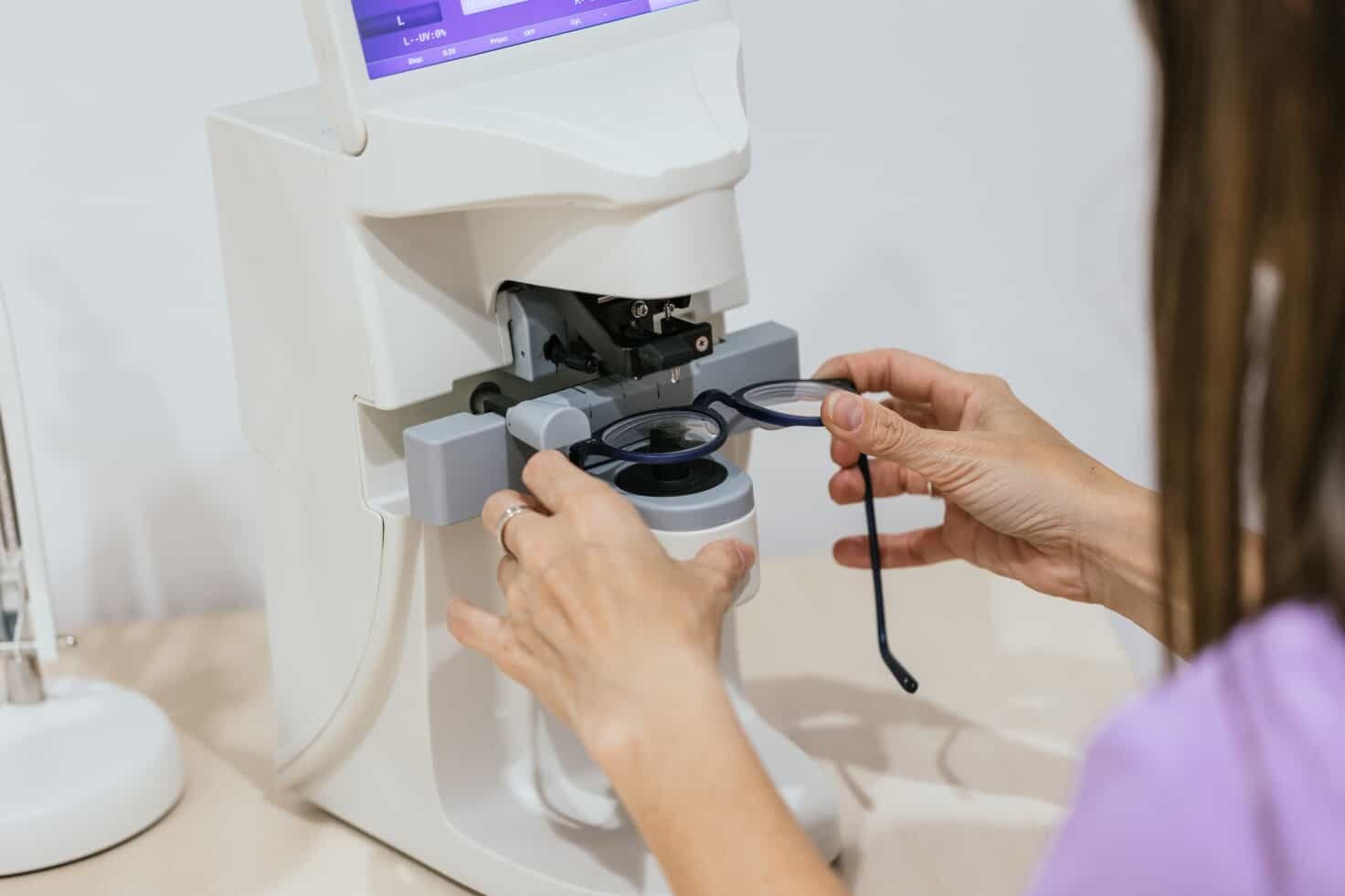
Factors to consider when shopping for an auto lensmeter include:
- Measurement Range and Accuracy: Patients have different vision correction needs. Your auto lensmeter must provide accurate readings at all points in the range. Look for a device that measures with a rating of ±20D, offering high accuracy for various lens types.
- Lens Compatibility: Your auto lensmeter needs to be compatible with every type of lens you offer to patients. Look for a device that can handle single-vision, bifocal, progressive, and freeform lenses.
- User Interface and Ergonomics: You and your staff will spend a lot of time using an auto lensmeter. Therefore, ergonomics and ease of use are crucial.
Look for a device that has intuitive controls that don’t require significant training to understand. A touchscreen interface enhances efficiency, allowing you to complete measurements more quickly. Look for ergonomic design features such as adjustable height and easy-to-move component parts that maximize ease of use.
- Data Connectivity: Recordkeeping and data sharing are key elements for all medical specialties. Automated integration between systems reduces the risk of data entry errors or missing information in charts. Many auto lensmeters offer connectivity features like wireless data transfer, compatibility with Electronic Medical Records (EMR) systems, and integration with other diagnostic equipment.
- Additional Features: Many auto lensmeters include advanced features to increase accuracy. You might find a model helpful that measures UV and blue light transmittance. It should also measure interpupillary distance (PD) and mark prisms.
Top 5 Auto Lensmeters for Optometrists
We selected five auto lensmeters that offer the best accuracy and reliability for your eye care practice.
1. Topcon SOLOS ($4,499.00)
The Topcon SOLOS is a fully automated lensmeter that can measure lenses from both ground and unpolished raw lenses. The Topcon SOLOS is ideal for practices seeking high automation and comprehensive lens evaluation.
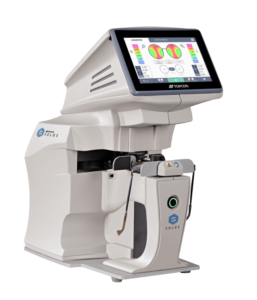
Key Features:
- Automated, one-touch operation.
- Lens mapping with distortion map.
- Measurement of UV-A, blue light, and visible light transmittance.
- Extended measurement range up to ±20D.
- Wireless data transfer capabilities.
2. Nidek LM-1800PD ($2,750.00)
The Nidek LM-1800PD is notable for its distinctive design. This design lets the nosepiece partially enter the lens table. This enables easier measurement of progressive lenses without removing the lens table. The Nidek LM-1800PD is ideal for clinics requiring precise measurements with advanced distortion assessment.
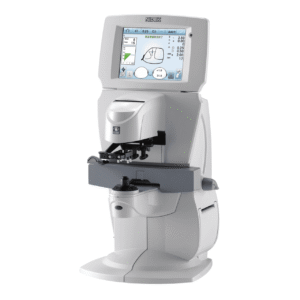
Key Features:
- Hartmann sensor with 108 multiple measurement points.
- Distortion check and green light/UV transmittance measurement.
- User-friendly tiltable LCD with 5.7-inch touch color panel.
- New lens table expanding measurement range.
3. Visionix VX40 ($2,090.00)
The Visionix VX40 features wavefront technology for a comprehensive, detailed analysis. Excellent for single vision, bifocals, and progressive lenses across all lens technologies and brands. The Visionix VX40 is ideal for practices seeking a comprehensive, automated solution with detailed lens evaluation capabilities.
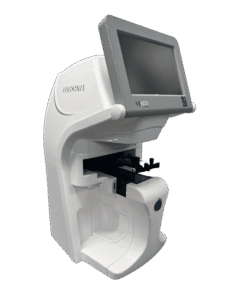
Key Features:
- Fully automated lens analysis and measurement.
- Automatic detection of single vision, bifocal, and progressive lenses.
- Internal printer for reports.
- Mono and binocular PD measurement.
- RS-232 and Bluetooth interfaces.
4. Essilor ALM800 ($3,490.00)
The Essilor ALM800 offers exceptional ease of use and accuracy. The proprietary technology enables blocking and marking in one single operation for increased efficiency. The Essilor ALM800 is ideal for practices that focus on UV and blue light assessment alongside traditional measurements.
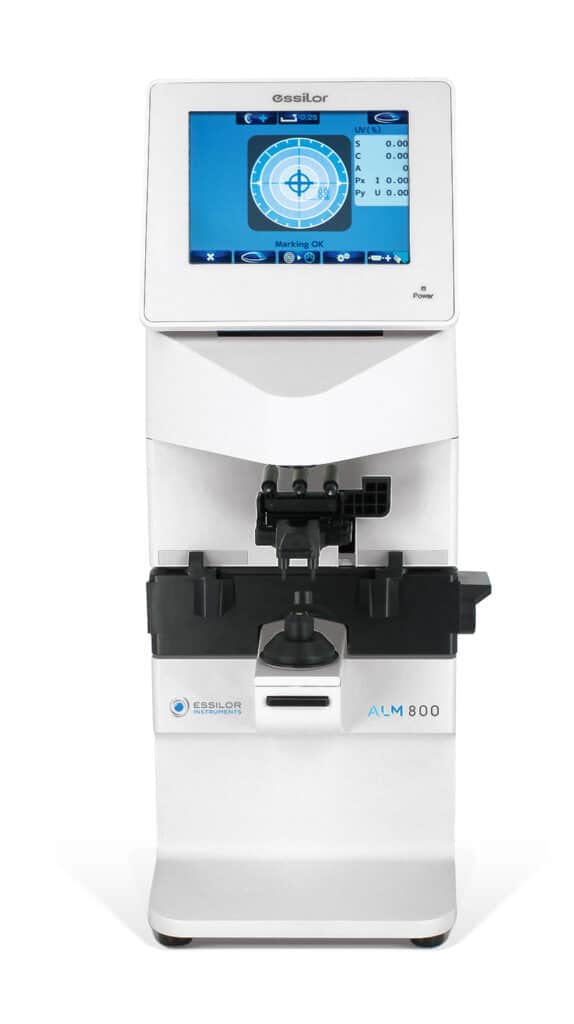
Key Features:
- Simultaneous measurement of lens power and UV transmission.
- Quantification and display of beneficial and harmful blue light transmission.
- Interpupillary distance measurement (½ and full).
- Guided and automated prism marking.
- Ergonomic design with adjustable screen position.
5. Reichert LensChek Pro ($2,222.00)
The Reichert LensChek Pro features a space-conscious design with a compact footprint, making it suitable for offices and labs of all sizes. The wide-angle, tilt LCD screen ensures comfortable use from virtually any position. The Reichert LensCheck Pro is ideal for practices needing a compact device with versatile measurement capabilities.
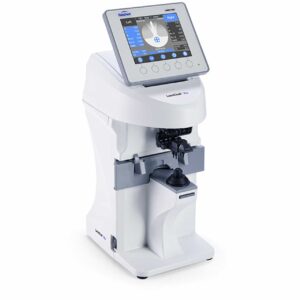
Key Features:
- Auto lens detection with green measurement light.
- Measures soft and hard contact lenses.
- Monocular and binocular PD measurement.
- UV transmittance measurement.
- Compact, modern design with a full-color 5.7″ LCD screen.
Comparative Analysis: Auto Lensmeter by Feature
|
Device |
Measurement Range |
UV/Blue Light Measurement |
PD Measurement |
Wireless Connectivity |
Lens Compatibility |
Touchscreen Interface |
Printer Included |
|
Topcon SOLOS |
±20D |
Yes |
Yes |
Yes |
All types |
Yes |
Yes |
|
Nidek LM-1800PD |
±10D |
Yes |
Yes |
No |
All types |
Yes |
Optional |
|
Visionix VX40 |
±10D |
Yes |
Yes |
Yes |
All types |
Yes |
Yes |
|
Essilor ALM800 |
±10D |
Yes |
Yes |
Yes |
All types |
Yes |
Yes |
|
Reichert LensChek Pro |
±10D |
Yes |
Yes |
Yes |
All types |
Yes |
Yes |
Frequently Asked Questions (FAQs)
Do auto lensmeters come with service plans?
Some manufacturers offer service plans for auto lensmeters, and they provide information about that on their websites. Shape Ophthalmic offers repair and maintenance services for customers who purchase equipment from us. Contact our team to learn more.
Can an auto lens meter replace my manual lens meter?
Auto lensmeters offer top-of-the-line accuracy and efficiency for prescription lens analysis. They are compatible with a wide range of prescriptions and all lens types. Many practices may find that an auto lensmeter is sufficient for their needs.
However, some eye care professionals prefer having both a manual lensmeter and an automated one. This allows them to do comparative measurements and double-check their own work. Choosing equipment for your practice depends on your specific needs and preferences.
Are auto lensmeters compatible with other types of optometry equipment?
Auto lensmeters with wireless capability can instantly transmit data to compatible devices. This may include wireless communication with phoropters or refraction systems. In some cases, devices are only compatible with other devices from the same manufacturer, which may influence your purchasing decisions.
Do you offer payment plans for auto lensmeters?
We do not offer financing. We require a non-refundable deposit at the time of purchase, with the balance due within three days of the sale. We also offer an option to put down a 50% down payment and pay the remainder on delivery.
Summary of Recommendations:
When choosing an auto lensmeter, consider your practice and your patients. Consider what features you need to provide excellent vision care.
Consider devices that offer an adequate measurement range and accuracy. Ensure the device you choose works with all lens types. This includes single-vision, bifocal, progressive, and freeform lenses.
Consider ease of use, operator comfort, and any space considerations your office may have. Also, take time to explore the value of features like UV and blue light measurement. Prism marking can also improve efficiency and accuracy.
Shape Ophthalmics is a top supplier of eye exam equipment for optometrists and ophthalmologists. We provide solutions that enable your practice to deliver exceptional eye care and vision correction to all your patients.
To learn more about auto lensmeters, which is best for your practice, explore Shape Ophthalmics’ selection of auto lensmeters. Our experts are available to answer any questions and help you find the best equipment solutions for your practice.
